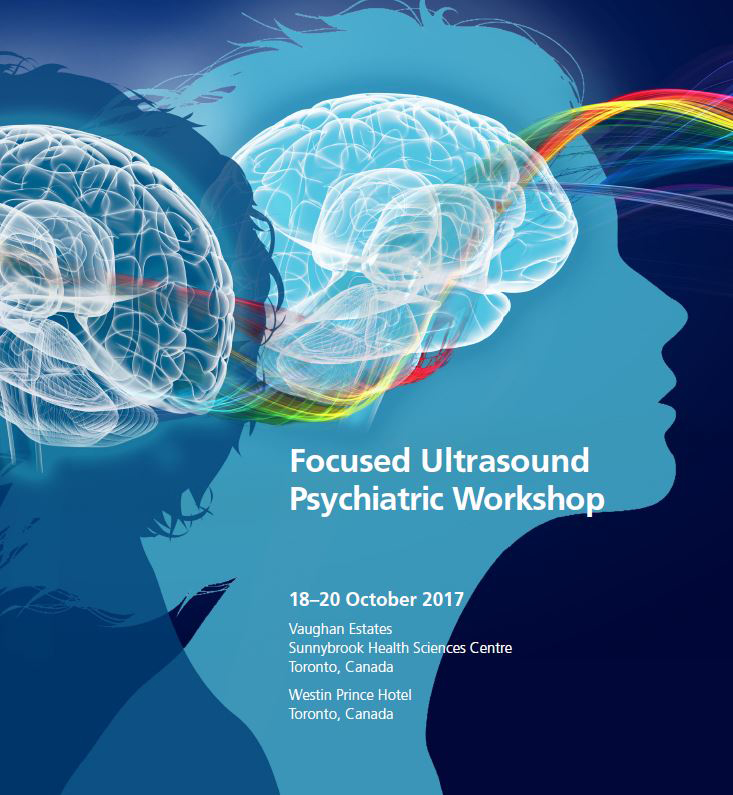Together with Sunnybrook Research Institute, the Foundation co-hosted a workshop October 18-20, 2017 in Toronto to create a roadmap of studies leading to new treatments of psychiatric conditions. The group discussed the state of the technology, past studies, current challenges, and future preclinical and clinical research directions for using focused ultrasound to treat or modulate disorders such as obsessive-compulsive disorder (OCD) and depression.
A unique forum for collaboration, the workshop included a multi-disciplinary group of experts in psychiatry, neurology, neurosurgery, neuroradiology, and neuroscience as well as scientific staff from the Focused Ultrasound Foundation and applications specialists from manufacturers. Researchers represented nine academic institutions.
“The workshop provided an ideal setting for dialog between the physicians and scientists who are beginning to use focused ultrasound to treat psychiatric conditions,” said Tim Meakem, MD, the Foundation’s Co-Chief Medical Officer. “We are grateful to the Sunnybrook team – notably Dr. Nir Lipsman – for his assistance in convening the leading minds on psychiatric disorders and developing a robust agenda. Treating certain regions of the brain is known to be effective for reducing symptoms of OCD and depression. Focused ultrasound is entering this field as a novel way to treat these regions non-invasively and without surgery or radiation.”
The group also addressed the technical challenges in completing the clinical trials already underway. “Exciting developments in structural and functional brain imaging will not only aid in more precise targeting of neuronal tracts, but they also have the potential to determine which patients may best benefit from focused ultrasound treatments,” said Suzanne LeBlang, MD, a neuroradiologist and the Foundation’s Co-Chief Medical Officer. “The treatment of psychiatric disorders could be an ideal application for focused ultrasound if research studies prove that it is safe and effective.”
Workshop participants had the opportunity to tour the focused ultrasound facilities at Sunnybrook Research Institute, where the first North American clinical trial to treat OCD is underway. “We’re very fortunate at Sunnybrook to have all the key stakeholders, from researchers to clinicians to our hospital leadership, aligned in helping drive FUS research forward,” said Nir Lipsman, MD, PhD, who is the principle investigator of the OCD and depression trials. “It’s the main reason we can move forward with so many exciting projects.”
Deliverables from the workshop will include:
- A roadmap for prioritizing clinical trials using focused ultrasound to treat OCD, depression, and other psychiatric illnesses, especially those with co-morbid depression.
- A description of challenges and possible solutions that can be included in future research projects.
- Potential funding opportunities for collaborative research projects by the Focused Ultrasound Foundation and other medical research foundations.
- A meeting summary/white paper that will be available in the near future.
“Patients with these disorders have suffered immensely and have generally tried all different treatment options with inadequate results,” said Rees Cosgrove, MD, FRCSC, Director of Epilepsy and Functional Neurosurgery at Brigham and Women’s Hospital in Boston. “Historically, we have seen some patients with dramatic improvements following appropriately placed surgical lesions. The use of focused ultrasound may provide a new therapeutic option to improve the lives of these patients.”
